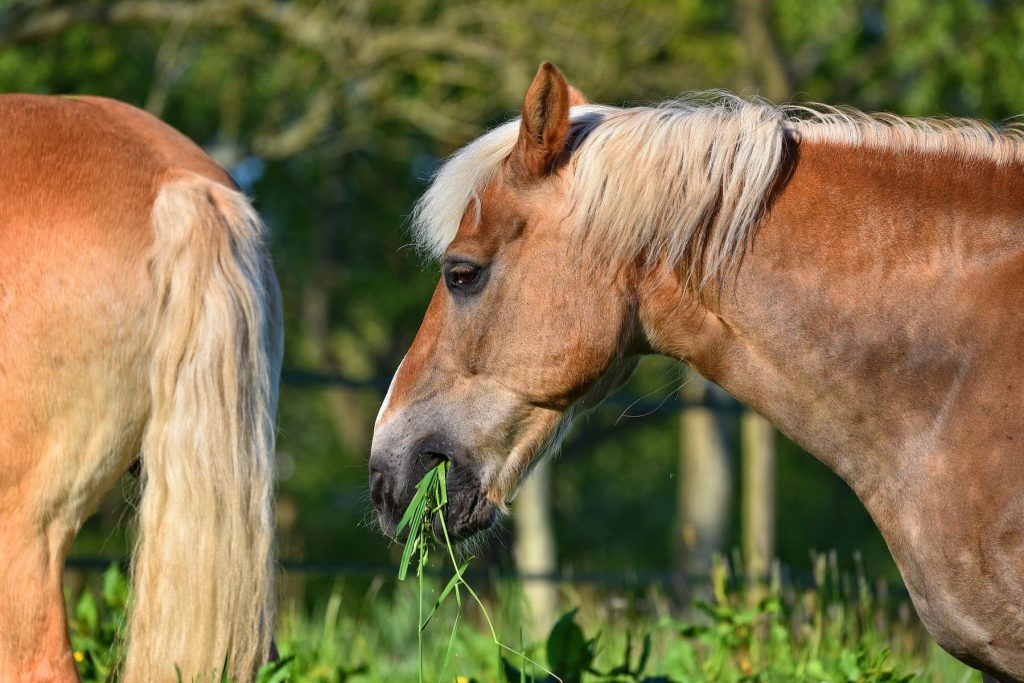Vitamins and minerals are vital for the wellbeing of your horse and without the right an im balance in the diet within meals, can lead to poor performance, productivity and health problems. Whilst a general horse commercial feed will contain these essential nutrients, it is important to ensure you select the right horse feed to meet your horse’s requirements and then feed it at the correct levels to ensure the diet is balanced. looking for those that contain essential minerals for equines is vital. In particular, trace But why are these minerals are beneficial for a horse’s diet? , but what are they and why are they important.
Trace Minerals – Small But Mighty
Attention to detail is important and trace minerals within a horse’s diet play a vital role despite being one of the smallest components. Horse feeds that contain a good mix of trace minerals such as zinc, copper and manganese help to counteract shortfalls in the forage part of the horse’s ration. bring a healthy balance to their diet, ensuring efficiency in productivity and performance. They help to promote many aspects of equine health such as fertility, metabolism and their overall immune system. Having a healthy coat and strong hooves is directly linked to trace minerals too, so having them as a supplement to their feed or already within the feed is ideal. As UK plants tend to be low in minerals such as copper and selenium, a horse will struggle to get the trace minerals it needs from forageing alone.
Copper, in particular, is important for physical health and a deficiency can affect connective tissue elasticity and cause contracted tendons. , with Selenium is an important an anti-oxidant that can help with muscle repair and recoveryproblems. If a horse has a zinc deficiency is a particular issue for stallions as it is an important mineral for male fertility. Fortified feeds are readily available but if they aren’t fed at the recommended levels then topping up with a balancer or supplement is essential. It can also be necessary to feed more if a horse suffers with a particular health issue; selenium for example can be useful for horses with ERS. ,
for example, this can lead to insulin resistance and can lead to problems with weight management and the development of serious disease such as laminitis. Choosing horse feed that contains some of the most important trace minerals as well as iron, cobalt and iodine, will provide a horse with all the supplementation it generally needs even though they are in small quantities.
Keeping a balance
Trace minerals play an important role alongside other factors including exercise. They are part of the delicate balance required to ensure a horse maintains a healthy lifestyle remains in good health, whether they are a high-performance thoroughbred or a lower energy-intensive breed used for leisure activities. Having too much of a good thing can cause problems, a mineral toxicity can be as harmful as a deficiency. Selenium has the lowest safety margin for horses and too much iron can also be a problem as rather than being an anti-oxidant that helps protects the cells in the body, it becomes a pro-oxidant increasing the risk of cellular damage.such as excess iron which can be common in horses. Iron is important for the blood, in particular the proteins that carry oxygen such as haemoglobin, but is present in many types of feed as well as water.
Too much iron, as with other minerals, can affect absorption levels of other essential trace minerals such as zinc and copper, as they compete with one another for the same absorption sites in the body. so g Getting the balance right for a particular horse will depend on any existing health issues and concerns. If you are in any doubt as to whether the horse food you are using is appropriate and contains enough vitamins and minerals, it is always worth checking with a qualified nutritionist.
Zinc is a crucial component for both protein and carbohydrate metabolism, but like copper, can be found in high levels naturally, whilst some breeds may develop a deficiency. Finding the right balance for your horse is recommended and can help avoid high levels of surplus amounts being absorbed. Choosing a feed rich in the essential vitamins and minerals it requires needs to be balanced with the levels of energy required and will ensure long term good health and performance.
